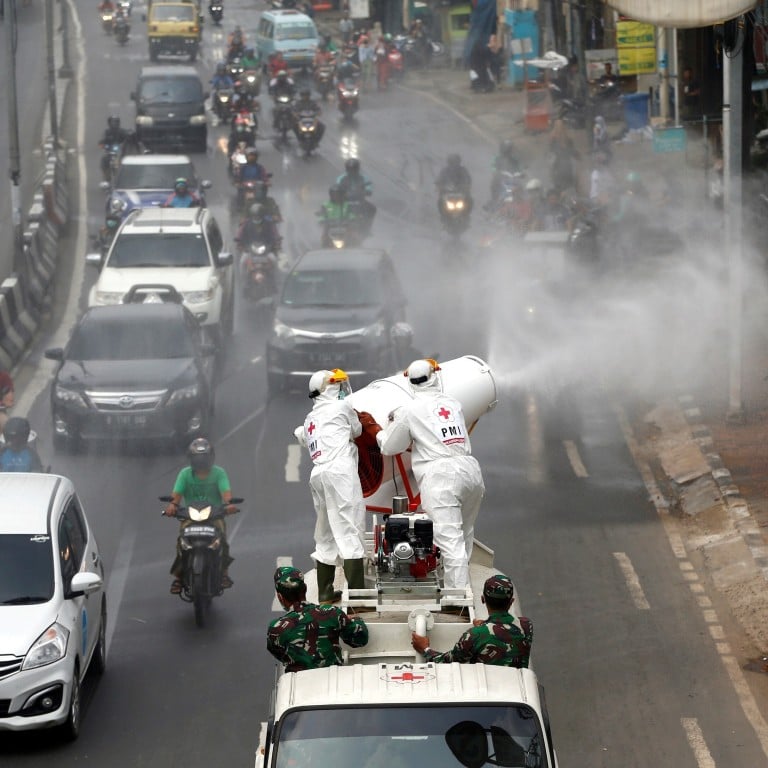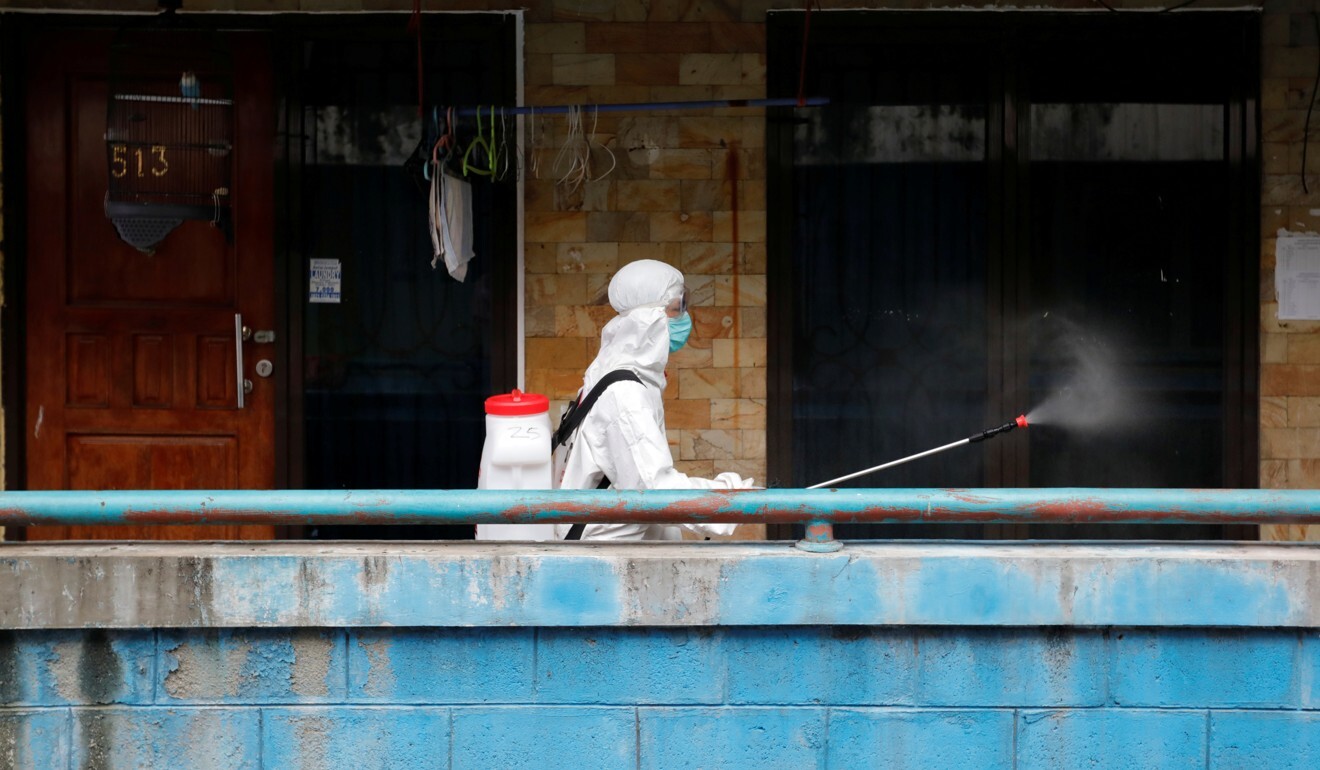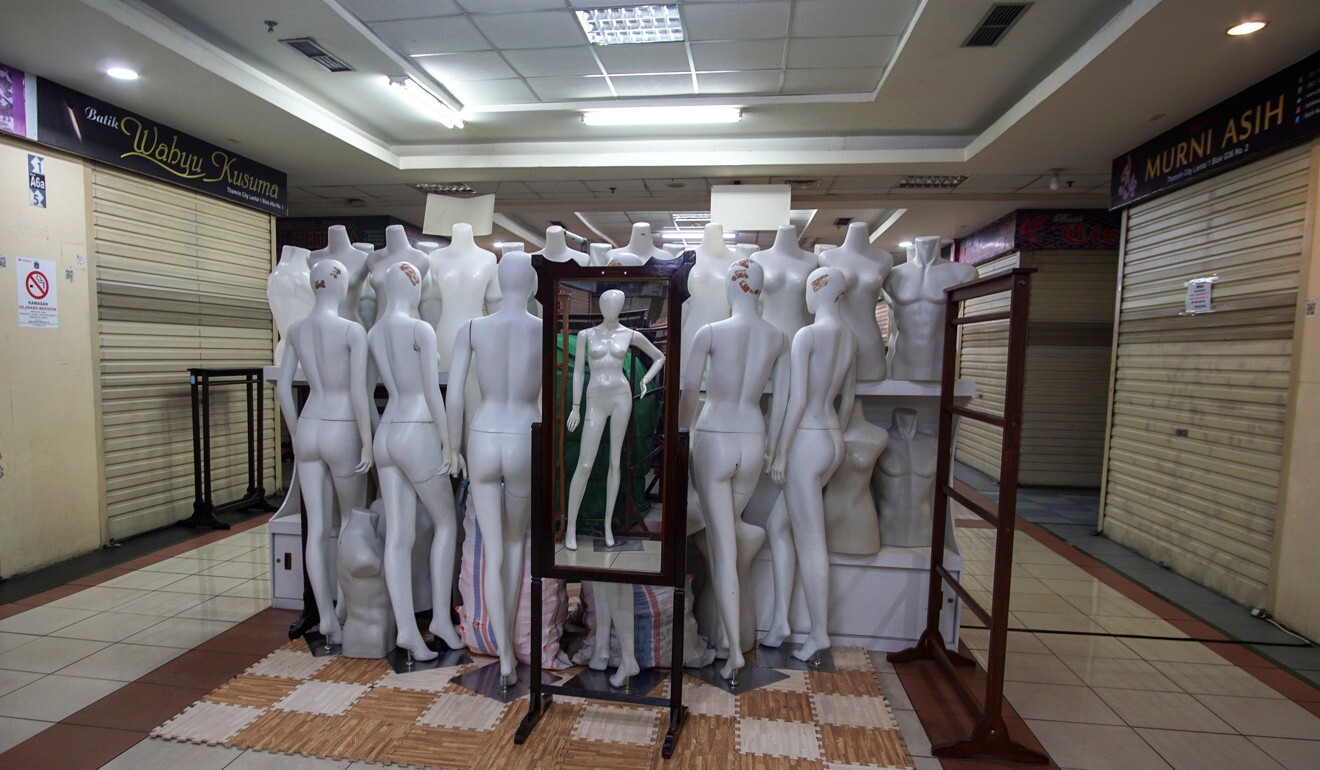
Coronavirus: Indonesia braces for exodus of millions of workers
- Jakarta expects 2.5 million migrant workers will leave the capital as it introduces strict new social distancing guidelines
- The country has suffered more deaths than any country in Asia other than China
He left before Jakarta on Friday introduced new social distancing guidelines that include a ban on gatherings of more than five people, limits on public transport and the closure of public places including schools, offices and places of worship.
Indonesia has suffered more deaths than any country in Asia other than China.
“Jakarta is scary at the moment. It is the epicentre of the virus. I lost a good friend to the virus. I also know four to five family members of friends have died from the coronavirus,” said Okki.

Okki drove from Jakarta to Bali, a journey which took him three days because he was deliberately avoiding public transport. During the journey, he stopped in Central Java for a break but did not visit his relatives like he normally did as he was trying to adhere to social distancing. He is currently staying in a quiet villa in Ubud, Bali, where he plans to remain until the pandemic dies down.
“Bali is less densely populated than Jakarta. I feel this place will be safer for my family for the time being,” said Okki, adding that his work does not require him to be physically present in Jakarta. He has been working from home and conducting meetings via video conferencing.
Covid-19 could live on in Indonesia long after world recovers
The Greater Jakarta area, home to 30 million, comprises about 18 per cent of Indonesia’s US$1 trillion economy, which is already suffering. The global economic hit from the pandemic has battered the country’s currency, stocks and bonds. Indonesia’s growth rate is expected to drop by half to 2.3 per cent this year.
Experts say the worst phase of the pandemic is yet to come. Projections from the nation’s intelligence agency and leading researchers suggest as many as 95,000 people could be infected by the end of next month.

On Thursday, Widodo announced additional budget allocations for social safety net schemes covering millions of migrant workers in Greater Jakarta who have lost their jobs amid the economic slowdown. He hoped the aid would persuade workers to remain in the city and not return to the provinces where experts fear the exodus will spread the virus like wildfire.
Despite health experts concerns, Widodo did not issue an official ban on travel back to the provinces. Instead he said last week that he “would appeal to the people” to remain in the capital.
An estimated 2.5 million migrant workers are expected to leave the capital with the onset of the commercial shutdown, according to the Jakarta administration.
“This week, the government decided to provide some new social assistance, namely special assistance of basic commodities from the central government to the residents of Jakarta, which will be allocated for 2.6 million recipients or 1.2 million households worth 600,000 rupiah (US$37) a month for three months. The allocated budget is 2.2 trillion rupiah,” Widodo told a press conference.
The government is also allocating 16.9 trillion rupiah forums Cash-For-Work Programme at various ministries targeting hundreds of thousands of workers.

Given it was unclear how much of the aid was in the form of assistance for basic commodities or in cash, it was doubtful it would be sufficient to keep workers in Jakarta, said Muhammad Habib Abiyan Dzakwan, a researcher from the Centre for Strategic and International Studies’s (CSIS) disaster management research unit.
“If the aid is for basic commodities only, it would not be enough as [workers] have to pay for rent. Therefore the risk remains they will still travel back to the provinces due to economic pressures,” said Habib.
Indonesia’s Widodo allows travel after Ramadan, raising fears infection will spread
Apart from poor migrant workers, growing numbers of workers have lost their jobs to retrenchment recently and will not be covered by the social safety scheme because this happened after the allocation was made.
“This is the trend that I am worried about. These retrenched workers did not fall below the poverty line prior to this. They are also going to return to their hometowns,” said Habib.
He added that a lack of restrictions on road transport leaving Jakarta would help fuel the exodus.
West Java, home to 50 million people, has also applied to the Health Ministry for approval to impose strict social restrictions in five districts where coronavirus clusters have been discovered.
With additional reporting from Bloomberg

